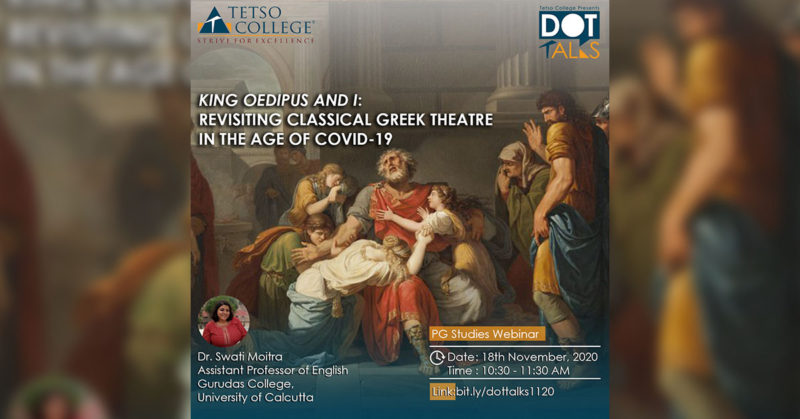Plagues, pestilence, epidemics: all common affairs in European Classical literature. Nowhere is it as central to the plot as it is in Sophocles’ classic play, Oedipus Rex. The Theban plague, the catalyst that leads up to the events that mark Oedipus’ tragic fall, could well be deemed a character on its own merit, wreaking immeasurable havoc on the body politic of the polis. Conventional readings of Oedipus Rex concern themselves with Oedipus’ tragic fall and the play of destiny. The exigencies of our pandemic times, however, demand a closer look at the Theban plague and the citizens of Thebes who experience the plague, and reconsider reading strategies of the same. In this lecture, I intend to re-read the Oedipus Rex embracing presentist concerns, asking questions about the ties between the health of a State and that of its citizens. In the process, I hope to talk about kingship, community, and health in Sophocles’ time and our own.
About the Speaker:
Swati Moitra (M.Phil, Ph.D) is an Assistant Professor of English at Gurudas College, University of Calcutta. She has earlier taught at Shivaji College and Miranda House, University of Delhi. Her areas of interest include book history and histories of readership,
feminist historiography and women’s history, nineteenth century studies, cultural studies, digital cultures and new media.
feminist historiography and women’s history, nineteenth century studies, cultural studies, digital cultures and new media.

